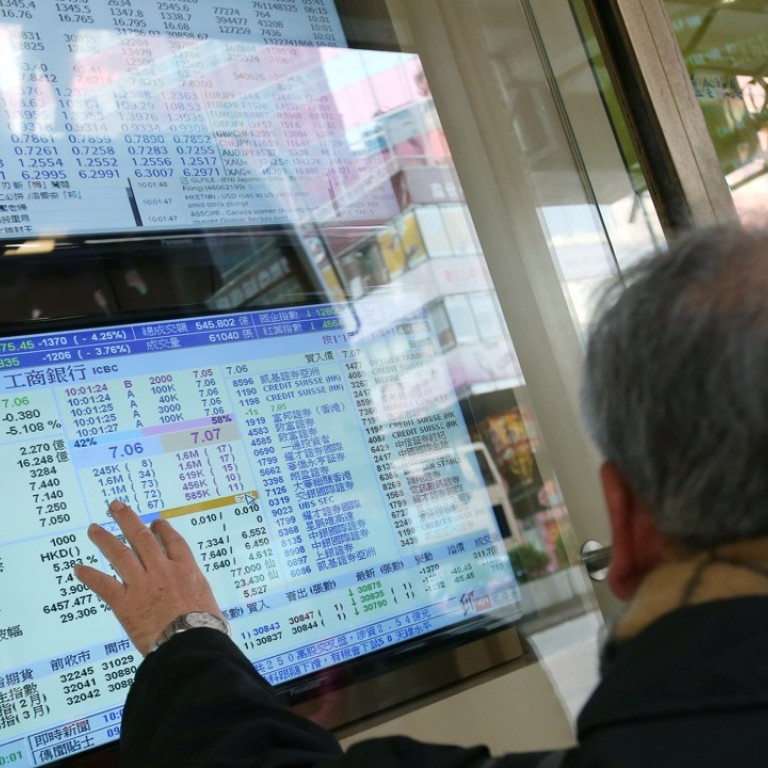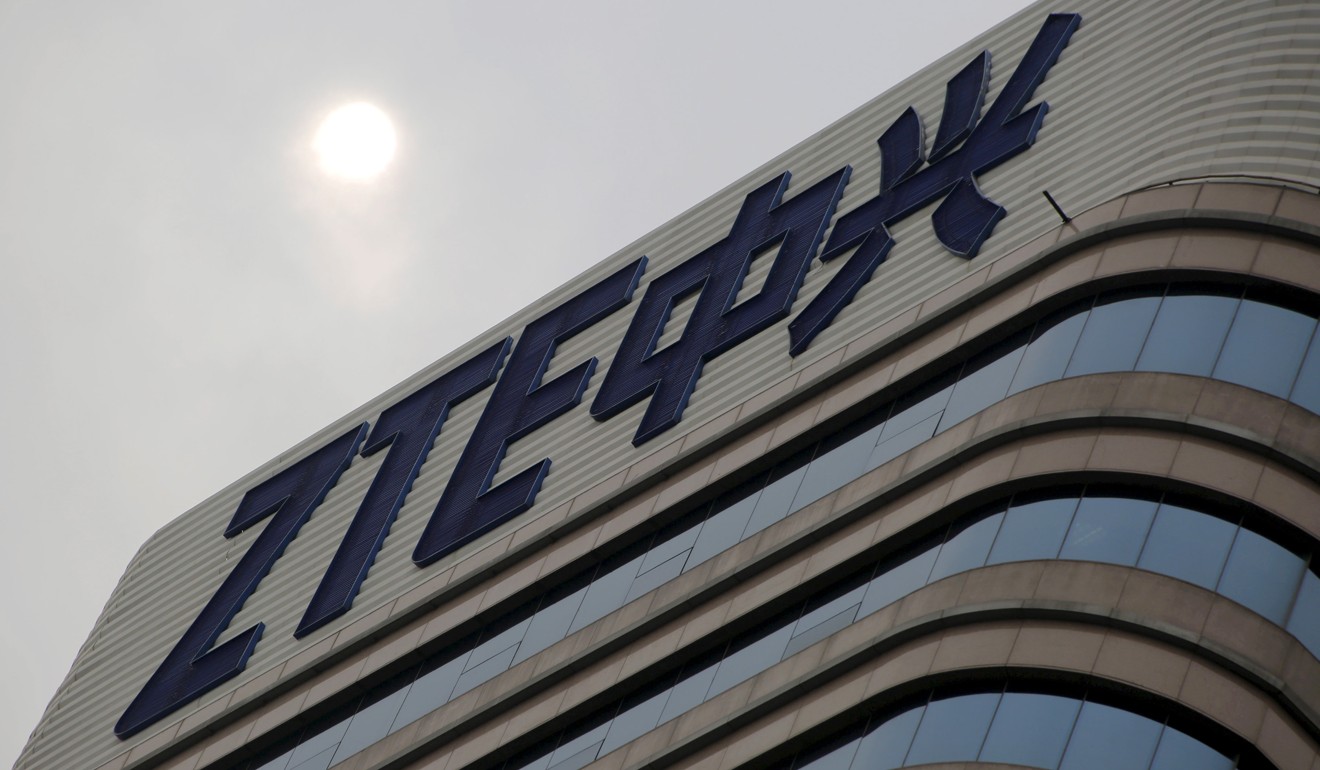
Update | China stocks drop to near one-year low as ZTE technology sanction adds to trade dispute
Mainland-listed tech stocks and shares of ZTE suppliers fall after the Chinese telecommunication equipment maker is banned from purchasing key US technology for 7 years
China’s stocks fell for a fourth day, sending its benchmark to the lowest level in almost a year on Tuesday, as concern mounted about escalating trade tensions between the world’s two largest economies after the US banned ZTE from buying key American technology.
The Shanghai Composite Index retreated 1.4 per cent, or 43.85 points, to 3,066.80, the lowest close since May 24. The ChiNext gauge of small-caps that are dominated by technology companies tumbled 3 per cent, as the US sanction against ZTE, the nation’s biggest publicly traded maker of telecom equipment, was seen by investors as a move to curb the development of China’s hi-tech industries. Hong Kong’s Hang Seng Index also dropped on worries that the monetary authority’s intervention in the local currency will soak up liquidity in the financial market.
Sell-off deepened in the afternoon session even as China’s statistics bureau released a full set of first-quarter economic data on Monday, where economic growth met estimates at 6.8 per cent and retail sales beat analysts’ projection.
ZTE, whose shares have been suspended in Shenzhen and Hong Kong since Monday, was slapped with the seven-year ban for rewarding employees involved in selling products to Iran and North Korea, the US Commerce Department said in a statement.
“The trade war between the two nations is further brewing up,” said Wu Kan, a fund manager at Shanshan Finance in Shanghai. “Through the ZTE issue, the market can easily fan out expectations that the ultimate purpose for the US to start this trade war is to rein in China’s hi-tech sectors such as chip-making. That’s why small-caps are having bigger declines.”
China and the US have announced higher tariffs on US$50 billion of goods imported from each other.
Through the ZTE issue, the market can easily fan out expectations that the ultimate purpose for the US to start this trade war is to rein in China’s hi-tech sectors such as chip-making
Han’s Laser Technology Industry Group paced the decline among mainland-listed tech companies, with the stock shedding 7.4 per cent to 51.10 yuan. Zhejiang Dahua Technology, a maker of surveillance cameras, slid 6.9 per cent to 23.20 yuan and Beijing Sinnet Technology, a provider of internal data centre service, tumbled by the 10-per cent daily cap to 16.75 yuan.
Some of ZTE’s suppliers fell in the mainland and Hong Kong trading. Shenzhen SDG Information, which derives 23 per cent of its sales from the company, slid 3.1 per cent to 9.71 yuan in Shenzhen and Guangdong Goworld dropped 3.7 per cent to 8.63 yuan, as the maker of ultrasonic electronics products relies on ZTE for 13 per cent of its revenues. MOBI Development, a maker of mobile communication radio components, plunged 15 per cent to 96 HK cents in Hong Kong. Sales to ZTE make up 46 per cent of the company’s revenue, according to Bloomberg data.

Borrowing costs in the city are expected to rise as the recent intervention by the de facto central bank in the currency market stands to reduce the level of cash in the banking system, known as the aggregate balance, to HK$161 billion from HK$180 billion last week.
The Hong Kong Monetary Authority spent HK$9.4 billion (US$1.2 billion) buying the local dollar on Monday, bringing the total amount of the purchases to HK$19 billion since the currency fell to the bottom of its permitted trading band on Thursday.
“Rising interest rates will keep worrying the market,” said Louis Tse Ming-kwong, managing director at VC Asset Management. “Property developers slid on higher borrowing costs to fund their projects.”
Among property stocks, China Evergrande Group dropped 3.7 per cent to HK$24.85 and Country Garden Holdings lost 2.4 per cent to HK$15.52. China Overseas Land & Investment sank 1.9 per cent to HK$26.20.



